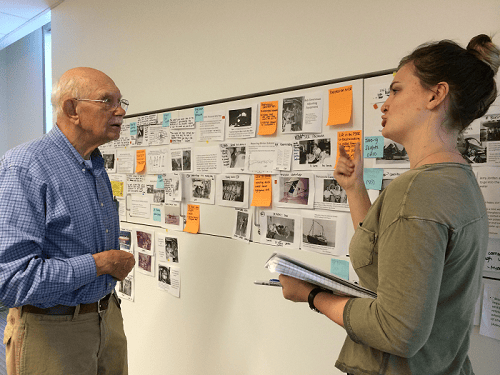The AHA Professional Division sponsored an Open Forum on Disability on Friday, January 4, 2008. Anthony Grafton, the outgoing vice president of the division, announced that the AHA’s Council had approved the formation of a Task Force on Disability. The three-year task force, made up of representatives from the Professional Division and the Disability History Association, will propose concrete steps the Association can take to better serve historians with disabilities. The formation of the task force is part of the division’s mission to ensure fair treatment of all historians and open access to the profession at every stage.
Catherine Kudlick, chair of the Disability History Association’s board of directors and professor of history at the University of California at Davis, pointed out that accessibility benefits everyone, not just a small group of people. Her most resonant example: the stereotypical style of delivering a conference presentation—reading a written paper in a monotone voice, as fast as possible, without making eye contact with the audience—is inaccessible to almost everyone. Accessibility need not be expensive or elaborate—merely advising speakers to speak clearly and make eye contact with the audience can improve the meeting experience for everyone. (For advice about making conference presentations accessible, see Susan Burch’s article in the guide for the 122nd Annual Meeting.)


